As a homeowner, unexpected property damages due to natural elements or neighbor disputes can be incredibly stressful. From fallen trees to fire or flood damage, these issues raise immediate concerns about financial protection and insurance coverage. Understanding the responsibilities tied to homeowners insurance and property boundaries is crucial for safeguarding your assets and ensuring peace of mind.
Fire Damage from a Neighbor’s Property
Homeowners insurance generally covers fire damage, even if the fire originates from a neighboring property. In cases where negligence is evident, such as an unattended candle or faulty wiring, the insurance provider may choose to seek reimbursement from the responsible neighbor's policy.
Flooding from a Neighbor’s Property
Proving negligence in cases of water damage due to poor drainage, malfunctioning downspouts, or landscaping changes can be challenging. It's important to note that standard homeowners insurance typically does not cover flooding. To mitigate risks, consider obtaining a separate flood insurance policy for comprehensive protection.
Tree Damage Responsibility
When a neighbor’s tree falls onto your property due to a storm, your insurance usually covers the damage. However, if the tree was clearly dead or in poor condition, and the neighbor was aware of this risk, their insurance may be liable.
Shared Fence Repair Costs
If a shared fence is damaged due to a storm, the responsibility for repairs generally falls equally on both homeowners. However, if one party's actions directly caused the damage, they might be required to cover the full repair cost.
The Insurance Claims Process
In scenarios where a neighbor's actions cause damage, insurance claims are handled carefully. Subrogation allows your insurer to seek reimbursement from the other party's insurer if negligence is proven. If not, your policy usually covers the damages without pursuing the neighbor’s insurance.
It's essential to review your policy and consider additional coverages, like flood insurance, to enhance your protection. A proactive step would be consulting an insurance professional to ensure your coverage meets all potential needs, giving you greater peace of mind.
